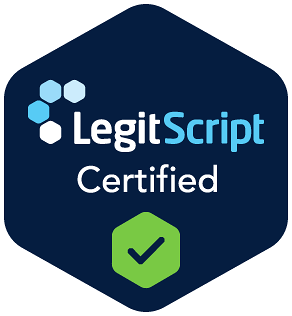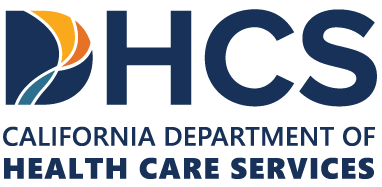What is a Rehab Center? Understanding Treatment and Recovery
Rehab centers provide specialized care for individuals struggling with substance use disorders (addictions). Drug and alcohol rehabs offer structured therapeutic environments where individuals can initiate their recovery journey with professional support.
This page explores what is a rehab center and shows you how to connect with compassionate and evidence-based addiction treatment near you.
Introduction to Rehabilitation Centers
A rehab center is a specialized healthcare facility designed to help people overcome substance dependence through evidence-based treatments, therapy, and supportive care. These centers address the physical aspects of addiction and the underlying psychological factors that contribute to substance use disorders.
Professional treatment is almost always beneficial because addiction fundamentally alters brain chemistry and function, making self-recovery remarkably challenging. Rehab centers provide medical supervision, psychological support, and a structured environment to help people safely and effectively work through the recovery process.
Types of Rehab Centers
Different rehab centers accommodate varying levels of addiction severity and individual circumstances.
Detoxification centers
Detox centers specialize in managing the acute physical symptoms of withdrawal that occur when substance use is discontinued. Medical professionals provide supervision and medication to ensure safety and comfort during this tricky initial phase of recovery.
Detoxification tackles the physical dependence on substances and is typically followed by comprehensive rehabilitation to address psychological dependence.
Inpatient rehabilitation
Inpatient facilities provide 24-hour care in structured residential settings. These programs remove individuals from potentially triggering environments and offer intensive treatment approaches. Typical inpatient stays range from 30 to 90 days, depending on individual needs and progress.
The immersive nature of inpatient rehab provides constant support, eliminating access to substances while addressing the physical, emotional, and psychological aspects of addiction simultaneously.
Outpatient rehabilitation
Outpatient programs enable individuals to receive treatment while continuing their daily responsibilities and living at home. These programs vary in intensity, from PHPs (partial hospitalization programs) and IOPs (intensive outpatient programs), requiring several hours of treatment multiple days per week, to standard outpatient care involving weekly therapy sessions.
This option works well for those with milder addictions, strong support systems, or individuals stepping down from inpatient care.
Sober living homes
These transitional living environments bridge the gap between intensive treatment and independent living. Residents maintain sobriety while gradually reintegrating into society, often working or attending school while receiving continued support and accountability.
How Rehab Centers Help with Addiction Treatment
Rehab centers employ multiple therapeutic approaches to address addiction comprehensively.
Medical detoxification
The initial phase of treatment focuses on safely managing withdrawal symptoms under medical supervision. Physicians may prescribe medications to alleviate discomfort and prevent potentially dangerous complications, particularly for alcohol and opioid withdrawal.
Medical detoxification ensures people begin their recovery journey with physical stability, preparing them for the therapeutic work ahead.
Therapy and counseling
Evidence-based therapeutic approaches address the psychological aspects of addiction:
- CBT (cognitive behavioral therapy) helps identify and modify harmful thought patterns that lead to substance use
- DBT (dialectical behavior therapy) focuses on emotional regulation and distress tolerance
- MI (motivational interviewing) enhances motivation to maintain sobriety
- Family therapy addresses relationship dynamics that may contribute to or be affected by addiction
These therapeutic interventions help people understand the root causes of their addiction and develop healthier coping mechanisms.
MAT (medication-assisted treatment)
For some substances, particularly opioids and alcohol, medications can support recovery by:
- Reducing cravings
- Blocking the pleasurable effects of substances
- Normalizing brain chemistry
- Preventing dangerous withdrawal symptoms
Medications like methadone, buprenorphine, and naltrexone, when combined with counseling and behavioral therapies, substantially improve treatment outcomes for many people.
Holistic and alternative therapies
Complementary approaches support overall wellness and provide additional coping strategies. These include:
- Mindfulness meditation
- Yoga and physical exercise
- Nutritional counseling
- Art and music therapy
- Stress management techniques
These holistic elements address the whole person, supporting physical, emotional, and spiritual healing alongside traditional treatments.

The Rehab Process: What to Expect
Understanding the rehab process helps prepare people for treatment. It typically begins with a comprehensive assessment, evaluating the nature and severity of substance use, co-occurring mental health conditions, medical history, and personal circumstances. This information sets the foundation for a personalized treatment plan.
Daily structure in rehabilitation programs generally includes:
- Individual therapy sessions
- Group counseling
- Educational workshops about addiction
- Life skills development
- Physical wellness activities
- Support group meetings
As treatment progresses, the focus shifts to developing relapse prevention strategies and creating aftercare plans. This includes ongoing therapy, support group participation, continued medication management, and regular check-ins with treatment providers.
Choosing the Right Rehab Center
Selecting an appropriate rehab facility involves considering several factors:
- Treatment approaches: Ensure the center offers evidence-based therapies aligned with individual needs
- Specialization: Some facilities focus on specific substances or demographics
- Location: Consider proximity to support systems or the benefits of distance from triggering environments
- Duration: The program length should align with the severity of the addiction and recovery goals
- Staff qualifications: Look for licensed, experienced professionals who have received addiction-specific training
- Accreditation: Certification from organizations such as CARF or The Joint Commission indicates adherence to established quality standards
- Aftercare support: Comprehensive programs include continuing care planning
How The Retreat South Coast Can Help
The Retreat South Coast offers comprehensive, individualized addiction treatment programs designed to address the nuanced nature of substance use disorders. Our approach combines evidence-based medical care with compassionate support in a healing environment conducive to recovery.
Our multidisciplinary team includes addiction medicine physicians, psychiatrists, licensed therapists, and recovery support specialists who collaborate to provide personalized care.
The Retreat South Coast offers a range of care options, including medically supervised detoxification, residential treatment, intensive outpatient programs, and comprehensive aftercare planning. Our holistic approach addresses addictions and co-occurring mental health conditions, as well as underlying trauma that may drive substance use.For those ready to begin their recovery journey, taking the first step is often the most challenging. Our admissions team is available to answer questions, address concerns, and guide people through the process of seeking help. Call (949) 612-4789 for immediate assistance.








